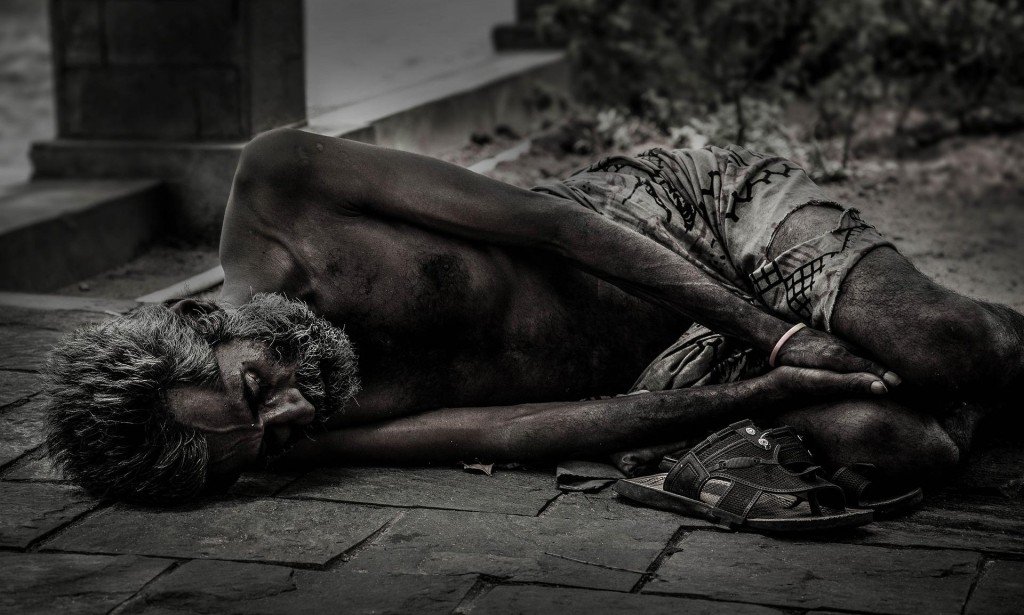Homelessness around the world

Homelessness is defined as living in substandard housing or without secure ownership. People can be classified as homeless if they: live on the streets (primary homelessness), move between temporary shelters that include friends and family homes and emergency accommodations (second homelessness), or live in private boarding homes without a private bathroom or safe space (The third stage of displacement). The legal definition of homelessness varies from country to country, or between different jurisdictions in the same region or country. According to UK homelessness charity Crisis, a home is not just a physical space, it provides its occupants with roots, identity, safety, a sense of belonging and is a place of emotional well-being. Statistical government studies of the homeless in the United States include people who sleep in a private or public space not designed as a permanent residence and sleep for humans. The homeless are usually unable to obtain permanent, safe, secure and adequate housing, due to lack or instability of material income. Poverty and homelessness are interlinked. There is no clear methodology for counting the homeless and determining their specific needs, so the number of homeless in most cities is only an estimate.
In 2005, nearly 100 million (1 in 65) people around the world were homeless, and nearly 1 billion people were living in slums, or as refugees in temporary shelters, with no adequate housing. Most of the old homeless in Western countries were men (50-80%), with a large proportion of single males. In 2015, the United States reported 564,708 homeless people on its territory, one of the highest rates in the world. It is possible that these numbers do not reflect the true situation, because tracking the homeless is difficult.
Most countries provide a range of services for the homeless. The provision of food, shelter, and clothing may be organized and managed by community organizations, usually with the help of volunteers, or by government departments. Assistance programs may be supported by government, charities, churches, or individual donations. In 1998, a study by Coogle and Shawnee of the homeless population in Los Angeles, California, reported that a large number of homeless people do not participate in government assistance programs, and stated that they did not know the reason for this, and the only possible suggestion that is believed to be evidence of this is that the costs of information are very high .
The United States Department of Housing and Urban Development and the Department of Veterans Affairs offer a Section 8 housing voucher program called VA Subsidized Housing that offers a certain number of Section 8 subsidized housing vouchers to eligible homeless and US military veterans. The program has succeeded in providing housing for many homeless veterans.
Causes of displacement :
Unavailability of employment opportunities
Poverty due to job loss or inability to work
Difficulty accessing health care
Misbehavior of government or powerful people
Wars or armed conflicts
natural disasters
Mental illness, without adequate health care.
Disability, especially when appropriate health care is not available.
Social exclusion, including ethnicity
Lack of affordable housing.
Domestic Violence
Separation between spouses, or between children and their families
get out of prison
Forced eviction, by governments in some countries in order to erect buildings or public roads in the place of former homes.
Home foreclosure as a way to pay off the homeowner's loans.
Effects of displacement :
Hostility and violence between vagrants, where each tries to show his physical strength in front of others, to become the strongest and most suitable among them and gain respect, appreciation and fear from them.
Homelessness is a fertile environment for crime, such as theft to obtain food, drink, and clothing, and may reach robbery and murder in order to obtain money, as criminal outposts seek to obtain children and teach them crime.
The spread of bad qualities among the vagrants such as lying, greed, claiming and jealousy.
The tramp acquires the skill of lying in order to beg and sympathize with people to get money in an easy way.
The spread of hatred and malice among the vagrants and biting each other, as well as the vagrants and all the different groups of society.
The spread of skin diseases and other diseases as a result of homelessness.
Prevalence of drug use and sometimes trafficking for money.
The prevalence of sexual harassment and homosexuality among the homeless.
Children work in difficult jobs in order to obtain money, which exposes them to many risks. Some homeless resorted to begging for money.
How to solve homelessness in the world :
Governments should strive to get rid of homelessness, by establishing an orphanage for homeless children and providing health care and care for them.
Governments create homes for the elderly to provide health care and care for them and protect them from homelessness on the streets.
The government also provides free hospitals to care for the homeless, prevent the spread of diseases, and provide free health care to them.
Providing housing for the homeless in the streets and roads.
Establishing organizations that sponsor human rights and children's rights and encouraging them to strive to eradicate the phenomenon of homelessness.
Providing free schools and free education for homeless children and seeking to upgrade and educate them with the aim of eliminating violence among them.
Encouraging community members to donate and helping the homeless to find suitable work and housing through advertisements, awareness campaigns on the Internet, television, and street and street advertisements.
Call to help the homeless in mosques and churches and encourage worshipers to help establish mental asylums for people with mental illnesses.
Availability of sanatoriums for the treatment of homeless addicts.

يجب عليك تسجيل الدخول لتستطيع كتابة تعليق